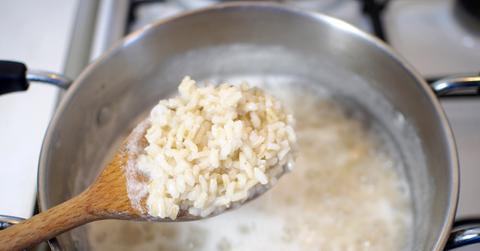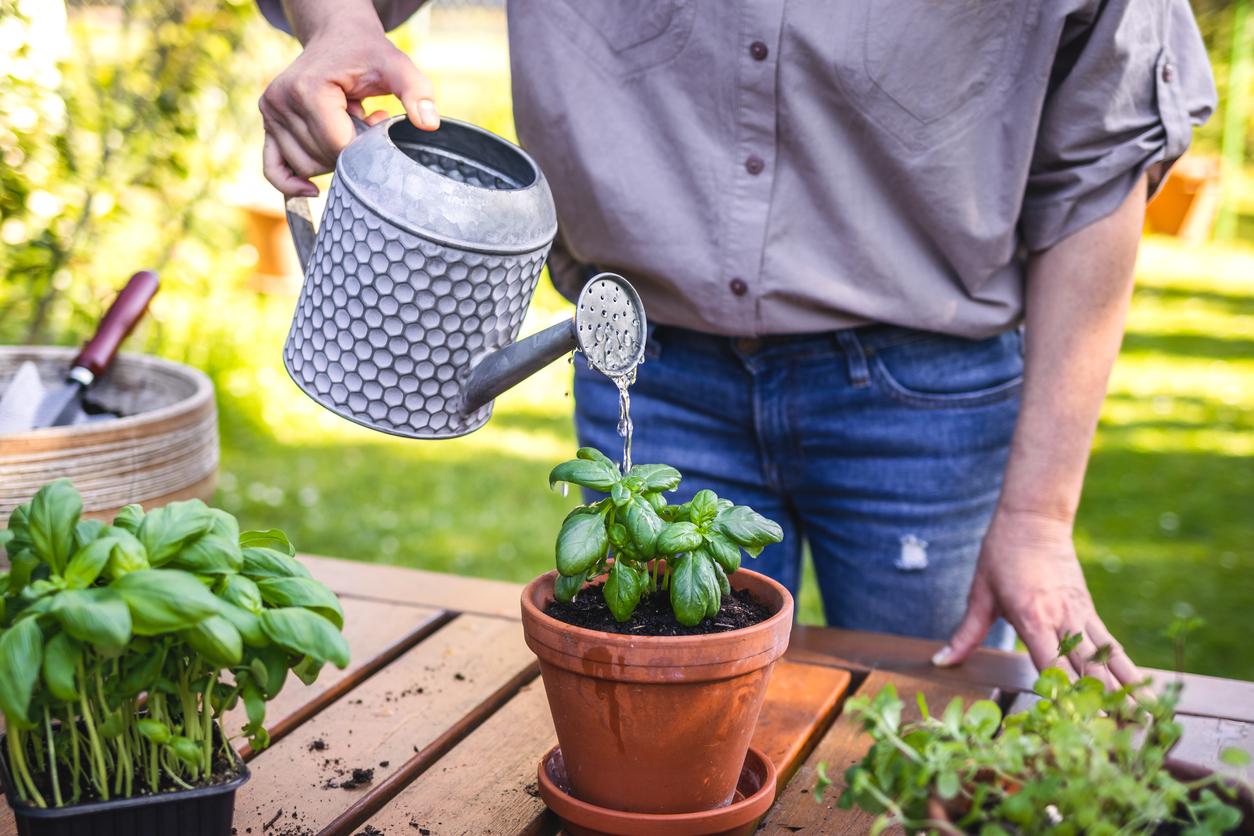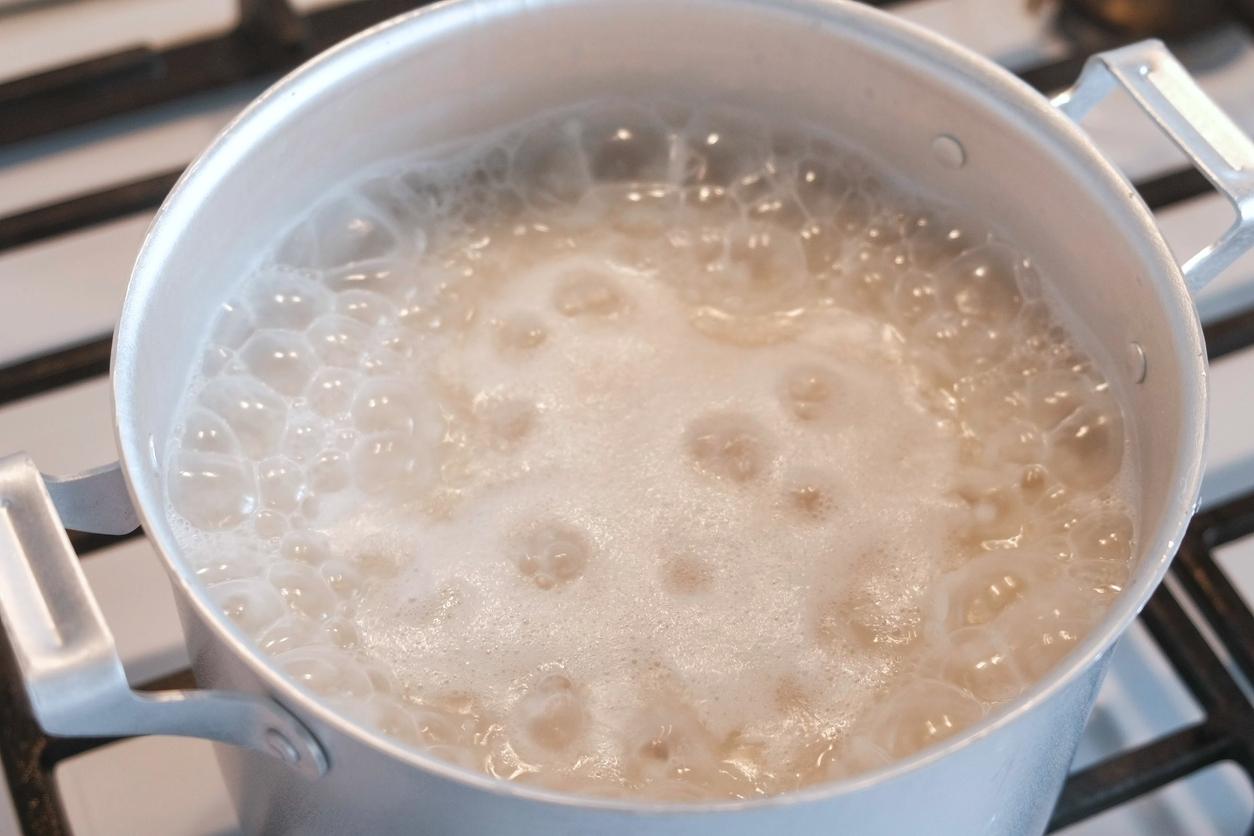Is Rice Water Good for Plants? This Hack Might Give Your Plants an Extra Boost
Published Jan. 3 2024, 2:33 p.m. ET

Plants have the cool ability to absorb nutrients from all sorts of unexpected sources. Rice water is a popular natural skincare remedy that some people believe can improve skin damage and help with hydration. But is rice water good for plants? Many gardeners have been trying to see if rice water will give their leafy greens a hydration boost.
It’s no secret that gardeners are willing to try almost anything to make their crops bigger and stronger. Incorporating rice water into your maintenance routine might just be the trick some have been waiting for.
Is rice water good for plants?

Rice water is exactly what it sounds like; It’s the water that’s leftover after cooking rice. It might sound odd, but this random substance is actually packed with sought-after nutrients like potassium, nitrogen, magnesium, and more, according to Reader’s Digest.
Just like humans, plants thrive when they’re well-nourished. Using rice water in the garden is a great way to improve your soil’s structure and nutrient content, as well as keep pests away.
Due to its wonderful benefits, including rice water in your daily maintenance routine might be tempting, but it’s best to use it sparingly. Like all things, too much of a good thing can quickly turn into something negative. To avoid starch buildup, limit your rice water to once a month.
This unique natural fertilizer can be used on just about any plant in your garden, but the results are most noticeable when applied to vegetation growing in acidic soil. Think tomatoes, peppers, succulents, ferns, and more.
Is fermented rice water good for plants?
If you’ve noticed a difference after using regular rice water, you can take things up a notch by fermenting it. The fermentation process increases the amount of lactic acid bacteria, which assists with disease resistance.
Even though this secret ingredient is effective, it’s not a replacement for regular water. Rice water — whether it’s fermented or not — is best used only as a special tool that gives your plants an occasional boost of nutrients. For some gardening techniques, such as hydroponics, it’s not as suitable.
Here's how to make rice water for plants:

There’s more than one way to make rice water. If you’re already making rice for a meal, you can simply save the boiled water that’s left over. However, there are a few things you have to do differently.
First of all, you can’t use a rice cooker or an instant pot — this won’t leave you with enough water. If you intend to save the water after you’re done cooking, you’ll need to make the rice on a stove. It’s also important to use a bit more water than usual.
Boil the rice on medium-high for about 40 minutes. Now, let it cool, strain the liquid into a container or jar with a mesh sieve, and voila! It’s all ready to go.
This next method requires much less attention — you just have to let some rice soak in a bowl of water. Put the rice in a bowl (any amount), add enough warm water to submerge it, mix it for two minutes, and then let it sit for 40 minutes. Strain the rice water into a jar and save it for later.
To make fermented rice water, start by soaking the rice and straining the resulting water into a jar, leaving space at the top. Take a teaspoon of sugar and four tablespoons of milk, add it to the jar, and stir.
Loosely cover the top of the container with a lid and let it sit for three or four days. Once the mixture looks translucent and smells a bit sour, it should be ready to use in your garden.
And if you don’t eat rice often, don’t worry. There are still plenty of potential fertilizers in your midst — common household items like coffee grounds, eggshells, and banana peels all offer an abundance of nutrients naturally.